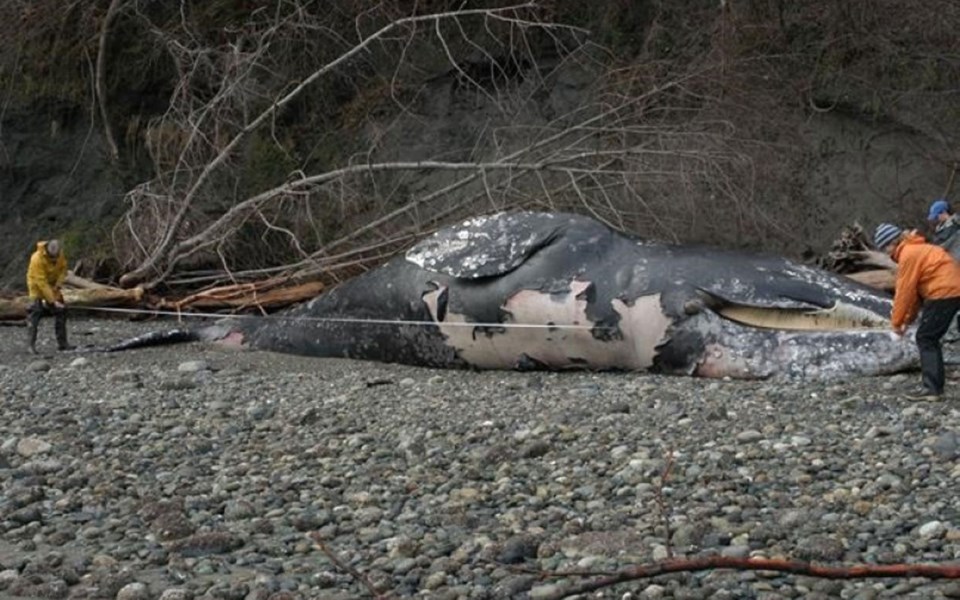Canadian and American scientists will study why an unusually high number of dead grey whales are washing ashore on the West Coast.
The National Oceanic and Atmospheric Administration says 70 whales have been found on U.S. territory from California to Alaska, and five more have washed up in British Columbia. It has declared the deaths an "unusual mortality event," prompting an investigation and additional resources to respond to the deaths.
NOAA spokesman Michael Milstein said many of the whales have been malnourished, and that suggests they may not have gotten enough to eat during their last feeding season in the Arctic.
John Calambokidis, a research biologist with the Cascadia Research Collective in Washington state, said it is early in the migration and the dead whales represent a fraction of those that die in the ocean.
"Most whales especially emaciated whales will tend to sink when dead. So the numbers that actually wash up do represent a fraction of the true numbers," he said on a conference call with reporters on Friday.
"A vast majority go unreported."
The population of grey whales was reduced by commercial whaling, but now they number around 27,000. They are still listed as a special concern under Canada's Species At Risk Act.
Sue Moore, a biological oceanographer with the University of Washington, said the whales might have died because waters are warming and there is not enough food.
"The Arctic is changing very, very quickly and whales are going to have to adjust to that," she said, adding that although they eat a variety of food they might not be finding the fat-rich food they need.
Calambokidis said live grey whales are also ending up in unusual areas, some of them emaciated and trying to feed, which makes them vulnerable to ship strikes and fishing activities.
"Along the West Coast we've seen more grey whales come into a number of protected bays and harbours," he said.
The scientists said they want to learn a number of things from their study of the grey whales including their body condition and ages.
"We know from past data that this population is capable of rebounding," said Weller. "We know they can recover given that other parameters remain the same and there's enough food."
Deborah Fauquier, a veterinary medical officer with the Office of Protected Resources in the U.S., said it can take several months to a year, "if not longer," to identify the cause of death for the whales.
"And there may be multiple causes. There may be contributory causes," she said.




